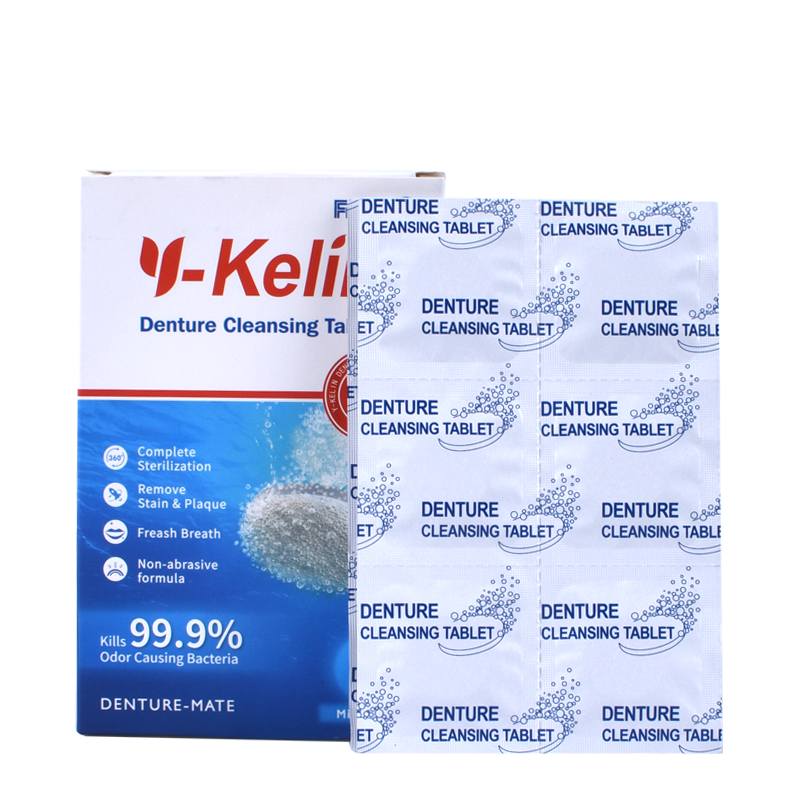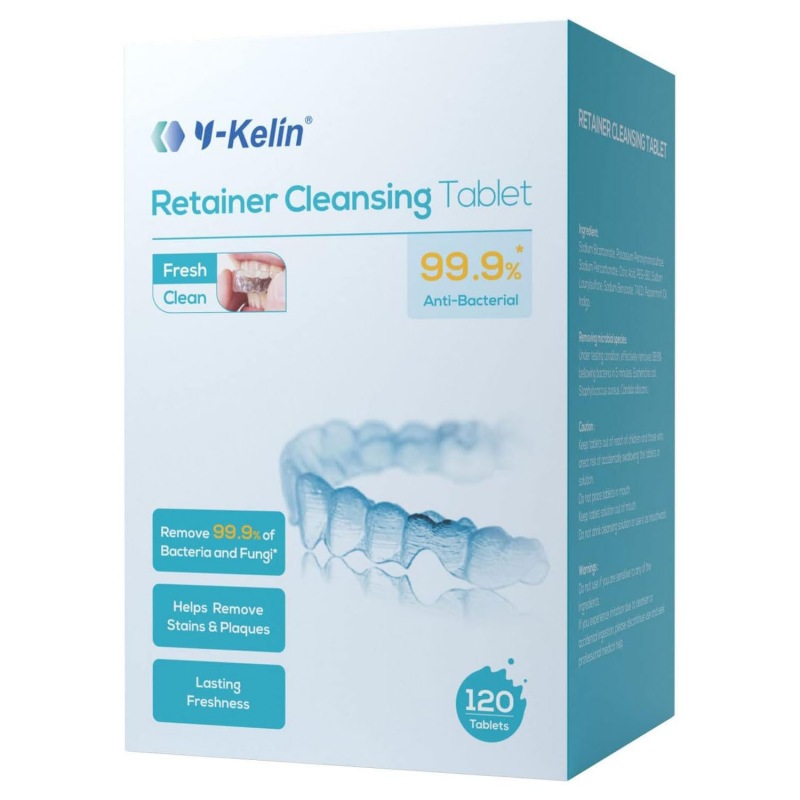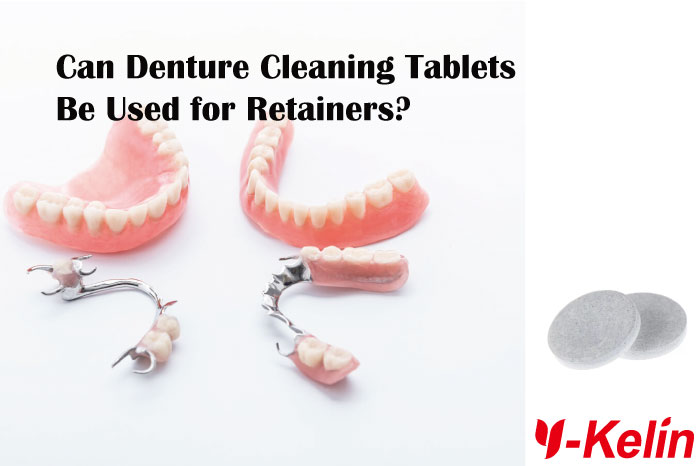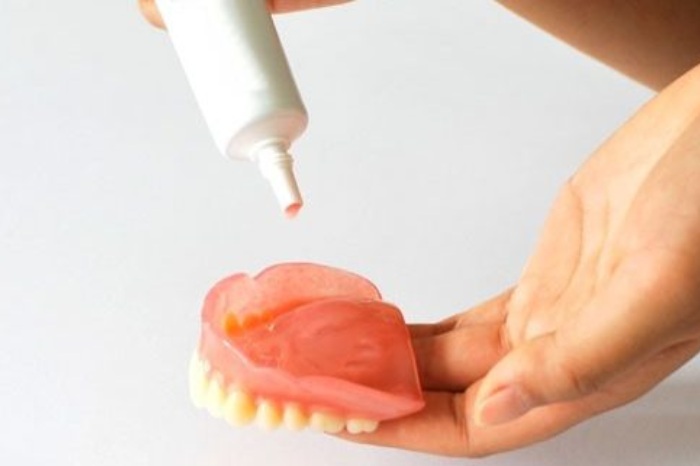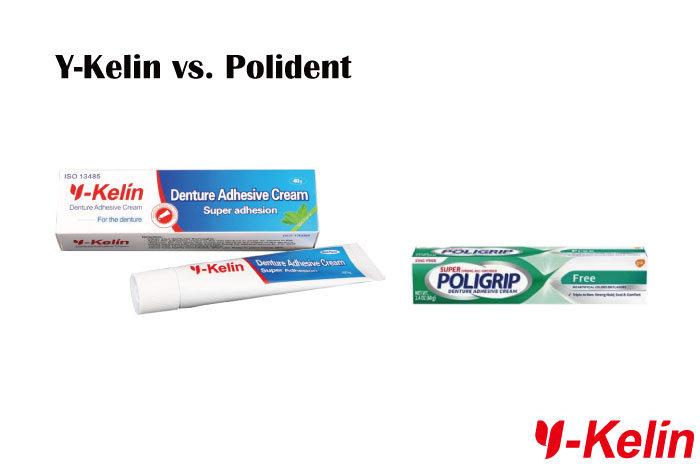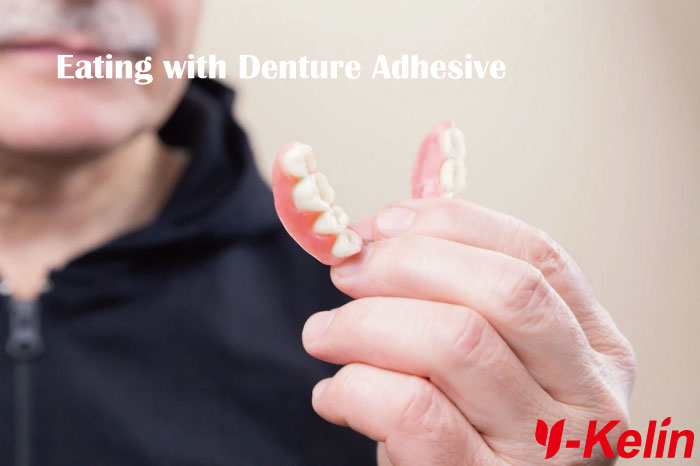
Eating with Denture Adhesive: A Comprehensive Guide
Published On:
For many denture wearers, the ability to eat comfortably and confidently is paramount to their quality of life. Denture adhesives play a significant role in achieving this, providing enhanced stability and retention for dentures.
This article delves into the benefits, safety considerations, and practical tips for eating with denture adhesive, drawing upon expert opinions and medical guidelines to ensure a comprehensive understanding.
Eating with Denture Adhesive: A Comprehensive Guide
The Role and Benefits of Denture Adhesives in Eating
✅ Benefits of eating with denture adhesive:
Helps prevent dentures from slipping or moving while chewing
Reduces gum irritation caused by food particles getting under the denture
Improves confidence when eating tougher or stickier foods
⚠️ Tips for eating with denture adhesive:
Start with soft foods if you’re new to dentures
Cut food into smaller pieces
Chew evenly on both sides of your mouth
Avoid very sticky or hard foods at first (like chewing gum or tough meat)
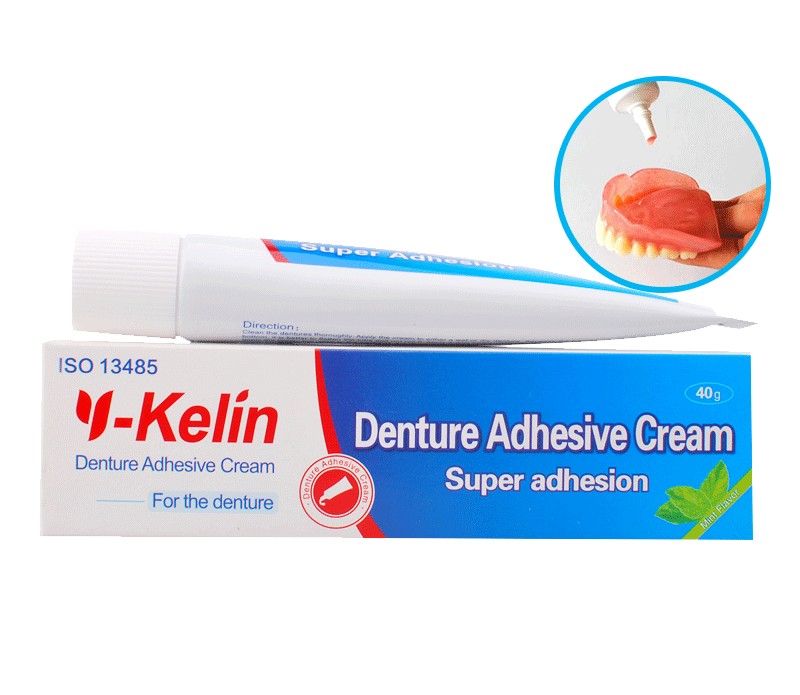
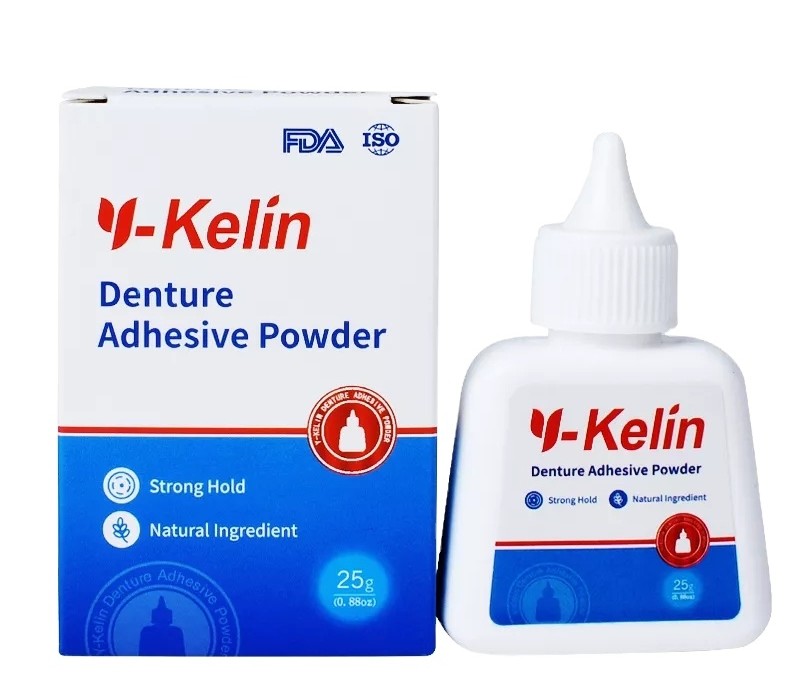
Safety Considerations and Proper Use
Zinc and Potential Risks
General Usage Guidelines
Practical Tips for Eating with Denture Adhesive
What Is Y‑Kelin Denture Adhesive?
Y‑Kelin Denture Adhesive Cream is a zinc‑free, waterproof formula designed to help keep dentures securely in place throughout the day. Its gentle composition makes it especially well‑suited for individuals with sensitive gums and those seeking long-lasting comfort during activities like eating, speaking, or socializing.
The product is produced by Y‑Kelin, a Chinese manufacturer established in 2007, with ISO 13485, CE, and FDA registrations ensuring its quality standards.
✅ Key Features
Long-lasting hold: The adhesive provides a reliable grip for up to 12 hours, even when eating or drinking.
Waterproof formula: Resistant to moisture from saliva, food, and beverages.
Zinc‑free and gentle: Reduces the risk of irritation or allergic reaction, making it ideal for users with sensitive gums.
Easy to apply: Smooth cream that spreads evenly without much mess.
Ingredients
Main active components include:
Calcium sodium PVM/MA copolymer (20–30%)
Carboxymethyl cellulose (25–30%)
Paraffin, Vaseline, menthol, silica, methyl‑paraben, and coloring agent Azorubin Y-Kelin.
How to Use It
Clean and dry your dentures before application.
Apply a thin, even layer of the cream in dots or strips along areas touching the gums.
Insert the dentures, pressing gently and biting down for a few seconds to bond.
Wait a few minutes before eating or drinking to let the adhesive set.
Remove carefully when ready—clean dentures thoroughly before reapplying if needed
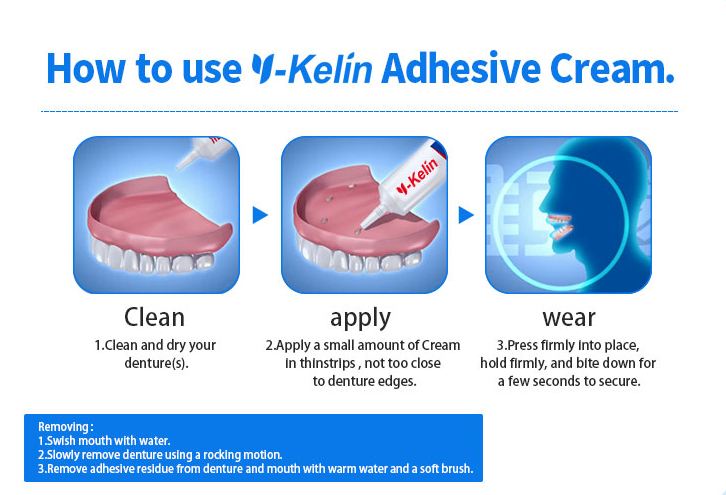
Conclusion
References
Get in Touch with Y-Kelin
Have questions or need more information? Contact us today, and our dedicated team will assist you promptly.


Y-Kelin is a trusted manufacturer of high-quality denture care products, including denture cleaning tablets, adhesive creams, and retainer cleaning solutions, offering customized services for global partners.
